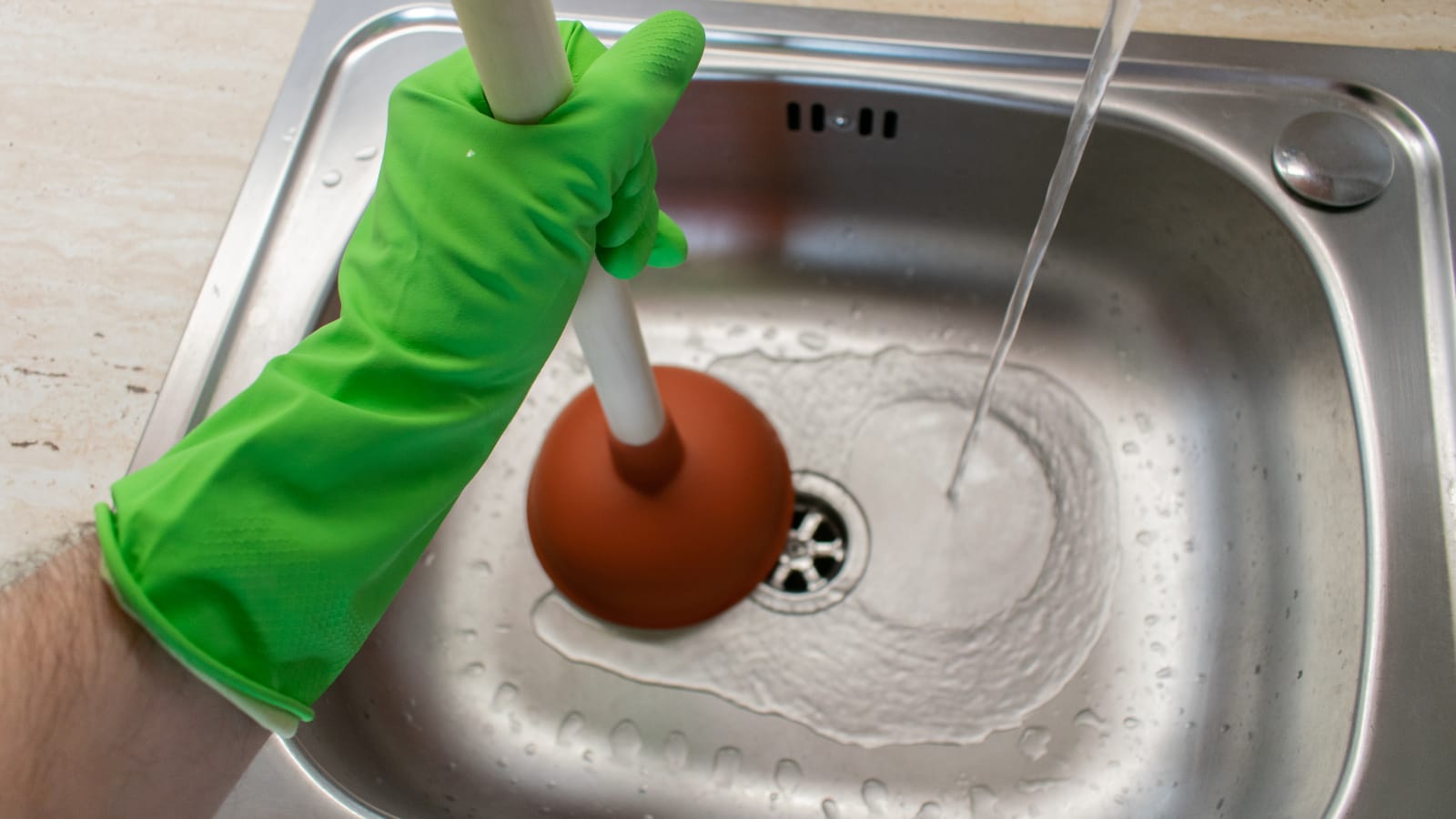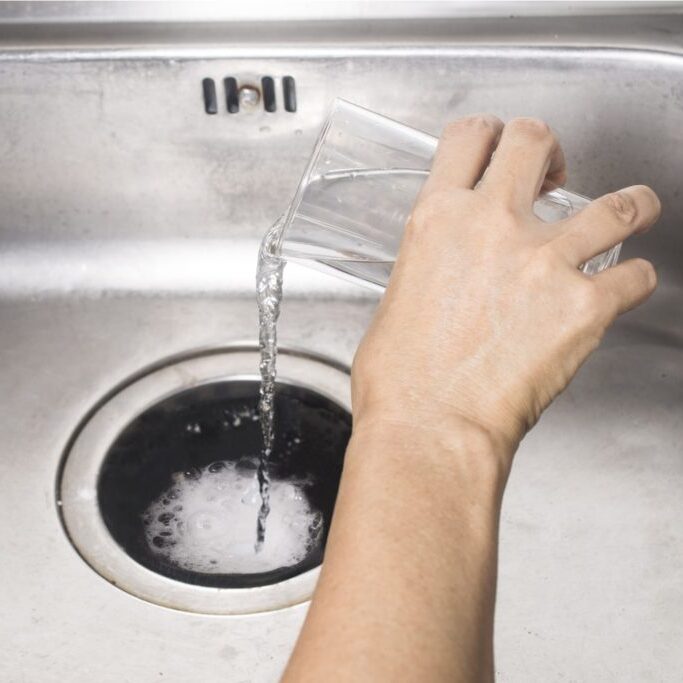Techniques To Quickly Fix A Slow-Draining Sink
Techniques To Quickly Fix A Slow-Draining Sink
Blog Article
They are making a few great observations about 7 Ways To Fix A Slow-Draining Sink Before You Call A Plumber in general in this content on the next paragraphs.

Intro
We have actually all been there: You're brushing your teeth or washing your hands, and you observe the water pooling in the sink. Rather than rapidly swirling down the tubes, it sticks around, transforming your once-refreshing morning regimen into a miniature overload scene. A slow-draining sink isn't just irritating; it's often an indication of bigger plumbing concerns lurking under the surface. The bright side is that a lot of slow-draining sinks can be fixed with a little knowledge, a couple of standard tools, and some perseverance. Ready to tackle this job head-on? Allow's roll up our sleeves and dive right in.
Recognizing the Reasons For a Slow-Draining Sink
Before you start poking around in your pipes, it assists to recognize what could be creating the slowdown. Understanding the source makes it much easier to select the best repair.
Tools and Products You'll Require
The right devices make all the difference. Thankfully, you won't require a fully stocked plumber's van to do the job.
Step-by-Step Guide to Fixing a Slow-Draining Sink
Currently, let's enter the nitty-gritty. This detailed process will guide you through basic techniques to restore your sink's drainage.
Action 1: Eliminate and Tidy the Stopper
Often, the stopper (that little plug you lower to block water) is the very first culprit. Remove it very carefully and wipe any kind of hair or gunk entraped around its base. Wash it thoroughly before putting it back in place.
Step 2: Utilize a Bettor to Displace Particles
Got that bettor prepared? Setting it over the drainpipe and offer it a couple of firm pumps. The idea is to create suction that can loosen up any kind of clog. If you see littles particles floating up, you're on the appropriate track.
Action 3: Attempt a Drainpipe Snake or Wire Wall Mount
If the plunger does not work, it's time to bring out the drainpipe snake. Gently feed it right into the drainpipe and twist as you go. You may really feel some resistance-- that's most likely the clog. Keep turning and pulling till you remove the blockage. If you don't have a drainpipe snake, a corrected wire hanger can operate in a pinch.
Step 4: Apply a Do It Yourself Drain Cleaner
A natural cleaner made from cooking soft drink and vinegar can break down residual gunk. Put half a mug of baking soft drink right into the drain, complied with by half a mug of vinegar. Allow it fizz for around 15 minutes, after that flush with warm water. This chemical reaction typically does marvels for small blockages.
Step 5: Reconstruct and Evaluate the Sink
Put whatever back with each other and run the faucet. Does the water currently swirl away at a reputable speed? If yes, offer yourself a pat on the back. Otherwise, do not misery-- there are still a couple of more tricks up your sleeve.
Necessary Devices for Do It Yourself Fixes
A plunger is your best beginning factor. A tiny, sink-sized plunger produces suction that can dislodge small obstructions. For even more consistent blockages, a drainpipe serpent (sometimes called a plumbing technician's auger) works wonders. A pair of gloves, a flashlight, and maybe a set of safety goggles are also handy.
Recommended Cleaning Solutions
Moderate recipe soap and warm water can assist break down greasy build-up. A blend of cooking soda and vinegar is a time-tested natural home remedy, and enzymatic cleansers supply an even more environment-friendly strategy. Maintain chemical drain cleansers as a last option, as they can be harsh on your pipes.
Typical Wrongdoers Behind Slow Water Drainage
So, what's obstructing points up? Generally, it's a mix of everyday debris-- assume hair, soap residue, tooth paste residue, and leftover food particles. Gradually, these tiny bits gather and hold on to the pipe wall surfaces, progressively tightening the flow and making it harder for water to travel through. In many cases, natural resource from difficult water can also include in the gunk, developing the best tornado for stubborn obstructions.
When is it Time to Do Something About It?
If you observe the water draining slower than normal, it's a good concept to intervene earlier as opposed to later. Waiting as well long can result in complete clogs, unpleasant odors, or perhaps pipeline damage. If the water takes greater than a few seconds to clean out after switching off the tap, consider it a red flag and get ready to place on your do it yourself hat.
Safety First: Safety Measures and Preparations
Before you launch into unclogging mode, consider security. You're managing possibly unclean water and particles, so slip on a pair of gloves. If you're using chemical cleaners, ensure the area is well-ventilated and comply with the directions on the tag.
Safety Gear and Workspace Arrangement
Put down some old towels or rags around the sink location to catch sprinkles. Eliminate any type of products that may get in your method, like soap dispensers or tooth brush holders. Ensure you have excellent lights-- get a flashlight if required.
Alternative Approaches for Stubborn Clogs
Not all clogs are produced equivalent. If your sink still refuses to comply, consider these alternative options.
Sodium Bicarbonate and Vinegar Method
We already touched on this, however it's worth noting once again. This mild, eco-friendly method is much safer than chemical cleaners and often quite effective.
Chemical Drain Cleaners
Enzyme-based cleaners use all-natural germs to digest organic matter. They're an outstanding option if you're wanting to avoid extreme chemicals. Just remember, they might take a bit longer to function their magic.
Chemical Drain Cleaners: Benefits And Drawbacks
Chemical cleansers can blow up via difficult obstructions quick, yet they're not without downsides. They can produce warm and fumes, damages pipelines if used excessively, and posture ecological risks. Use them sparingly, and always adhere to the instructions very carefully.
Preventive Measures to Keep Your Sink Flowing
Avoidance is the best treatment. By taking on a few straightforward practices, you can maintain your sink from reducing in the first place.
Regular Cleaning Practices
Clean down the sink container and component location frequently. Eliminate hair or food fragments prior to they have an opportunity to wash down the drainpipe.
Staying Clear Of Hazardous Substances Down The Tubes
Reconsider prior to discarding coffee premises, oil, or fibrous vegetable scraps down the sink. These culprits cling to pipe wall surfaces, producing obstructions in time.
Routine Upkeep Checks
Set up a fast regular monthly assessment. Run hot water through the sink for a couple of minutes, paying attention to the circulation. If it seems slow-moving, act quick before it ends up being a full-on obstruction.
When to Call a Specialist Plumber
Occasionally, regardless of how tough you attempt, that block just will not move. That's when it's time to generate the pros.
Indicators That Indicate a Much More Major Concern
If your sink drains gradually regardless of numerous attempts, or if you discover water supporting in other fixtures (like your shower or commode), you may have a much more serious plumbing problem lurking deeper in the system.
Balancing Do It Yourself Initiatives with Specialist Aid
While do it yourself can conserve you money and use a feeling of achievement, there's no embarassment in calling an expert. An expert plumber can evaluate your whole plumbing configuration, making sure there's no underlying damages or long-term problem that could cost you much more in the future.
Comparing Expenses and Long-Term Solutions
Before making a decision, think about the big picture. An economical, quick fix could fix the issue briefly, but purchasing a much more permanent remedy can save you money and anxiety in the future.
Considering the Expenditures of DIY vs. Professional Solutions
Do it yourself repairs commonly cost little bit greater than the cost of a plunger or a bottle of cooking soda. Specialist services, on the other hand, featured a price tag however may prevent repeated concerns and costly fixings later on.
Investing in Quality Fixtures and Upgrades
If your sink's layout adds to constant blockages, it might be worth upgrading to higher-quality fixtures or altering the pipes design. Consider this a financial investment in your house's functionality and convenience.
Verdict
A slow-draining sink can feel like a minor irritation, yet it's commonly an indication that your pipes needs a little tender loving care. By understanding the origin, utilizing the right devices and techniques, and dedicating to basic safety nets, you can maintain your sink flowing freely. And when all else falls short, never ever wait to employ a specialist-- your home's pipes deserves the investment in care and upkeep.
Three Common Ways to Fix a Slow Drain
Baking Soda Method
Boil a full pot of water. Measure out cup of baking soda and pour it down the drain. Then take cup of the magical cleansing substance known as white vinegar and drop that down there too. Allow the mixture to fizz in the drain for five minutes as the vinegar and baking soda combine. Now dump in that whole pot of boiling water. This combination of cleaning substances should clear out anything that is causing your sink to drain slowly. If it doesn t...
Zip-It
If the baking soda method doesn t clear out your drain, it may be because a significant amount of hair and/or other debris has collected there and you need to remove it. Purchase a Zip-It tool at any home improvement or hardware store and insert it into your drain. It will catch any collected hair or debris that s blocking the flow of water. Pull it out. If it s got a big clump of hair, etc. on the end, you ve probably got your culprit.
Drain Cleaner
If these methods don t work, there is the standard drain cleaner that you can also buy in a hardware store or even your local grocery store. It s better if you can use a household solution, but these drain cleaners often work in a pinch. They re very simple to use. You generally just dump them in your drain and wait. If even this method is not effective, it may be time to call the plumber.
https://www.mrrooter.com/oneida/about-us/blog/2017/july/three-common-ways-to-fix-a-slow-drain/

Do you enjoy reading up on ? Post a short review down the page. We will be delighted to see your views about this article. In hopes that you visit us again later on. If you enjoyed reading our post plz make sure you remember to pass it around. I am grateful for being here. Don't forget to pay a visit to our site back soon.
Estimating Report this page